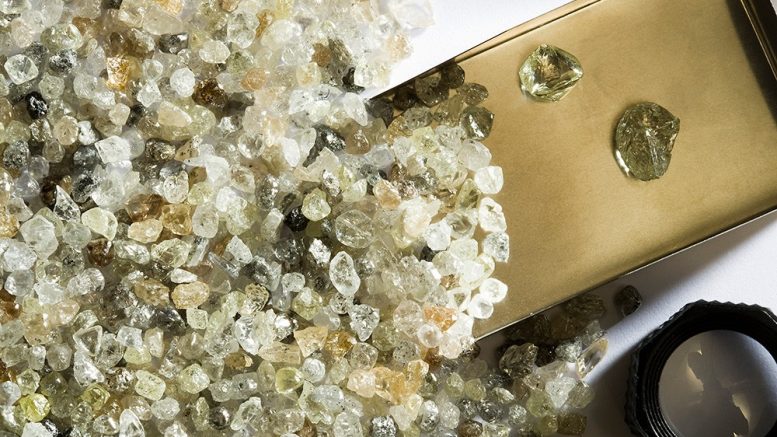
New Delhi: India’s imports of Russian diamonds have increased during January-June 2024 by 22% year-on-year to 4.1 million carats, according to the official data of the Indian Ministry of Commerce and Industry.
In June, Russian exports amounted to 347,620 carats, which is almost 32% more than in June last year. In six months, most of the supplies, about 77%, accounted for gem-quality diamonds. Last year, the share of such stones in total exports to India was 63%.
This growth in exports occurred despite Western sanctions imposed on Russian diamonds, with India maintaining its role as a major hub for diamond cutting and polishing. India has turned to Russia to sustain its diamond polishing industry, which is centered in Surat and processes about 90% of the world’s rough diamonds.
The global market is now stagnating amid declining prices for rough and polished diamonds. According to the Kimberley Process (Organization of Diamond Producing Nations and Diamond Importers), global diamond production in 2023 decreased by about 8% to 111.5 million carats.
The G7 and EU have imposed sanctions on Russian diamonds, which initially targeted non-industrial diamonds and later expanded to include those processed in third countries. These sanctions have created challenges for the Indian diamond industry, which relies heavily on Russian rough diamonds for its operations. Indian officials, including External Affairs Minister S. Jaishankar, have expressed concerns that these sanctions could harm India’s diamond sector, emphasizing the need for discussions with Belgium and other nations to mitigate the impact.
The sanctions are set to evolve, with stricter measures planned for September 2024, which will include smaller diamonds and lab-grown diamonds. In response, Indian exporters are advocating for a certification process within India to streamline operations and reduce costs associated with the current requirement to send diamonds to Belgium for verification.



